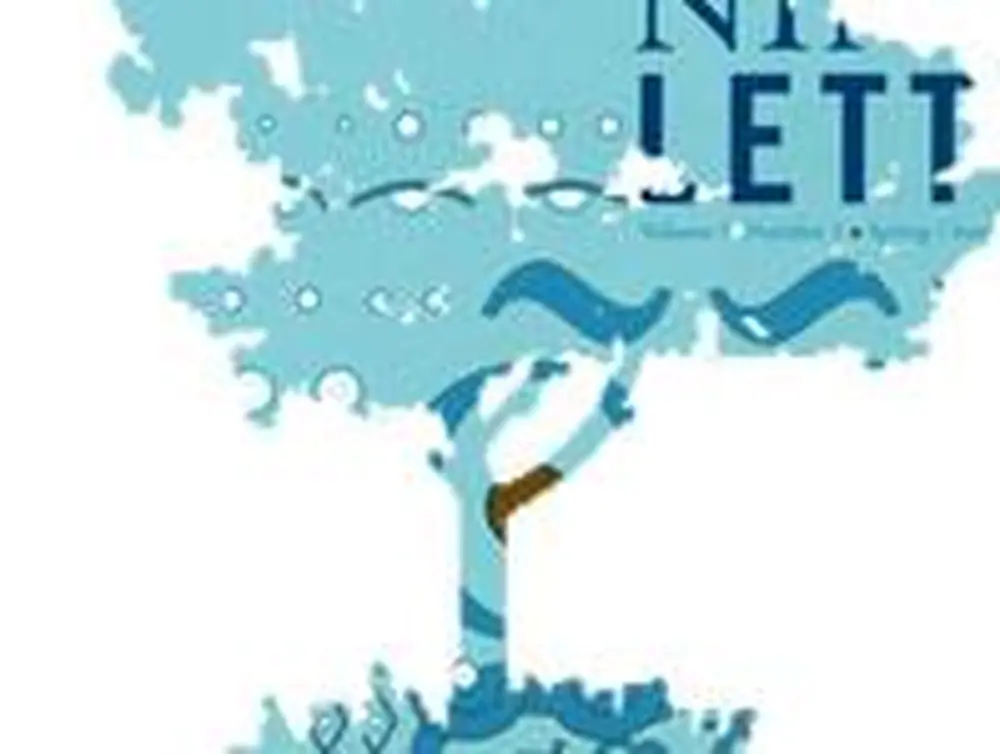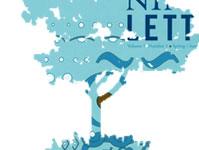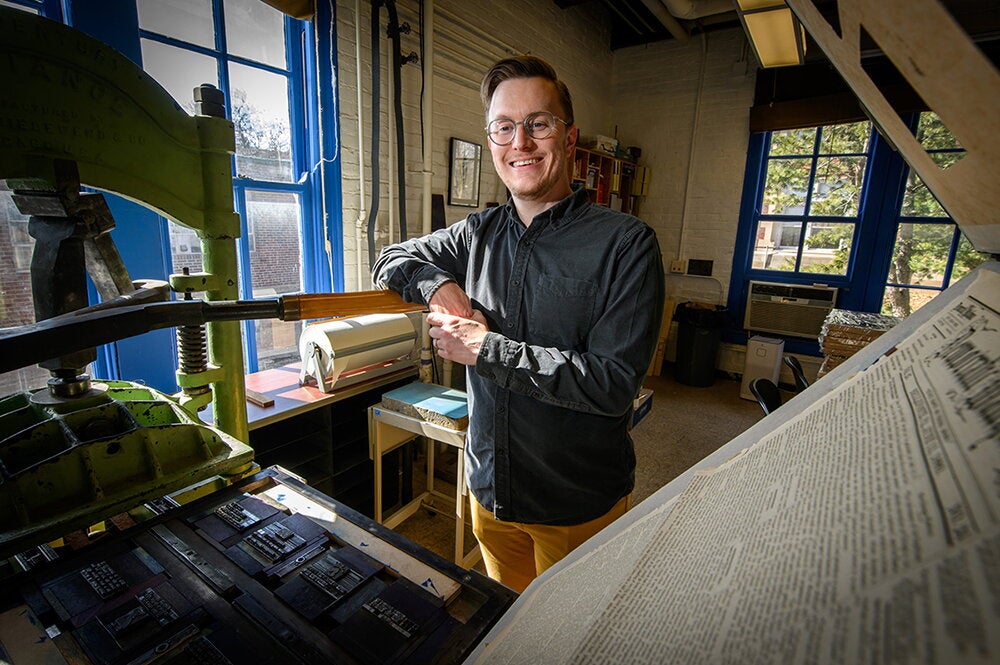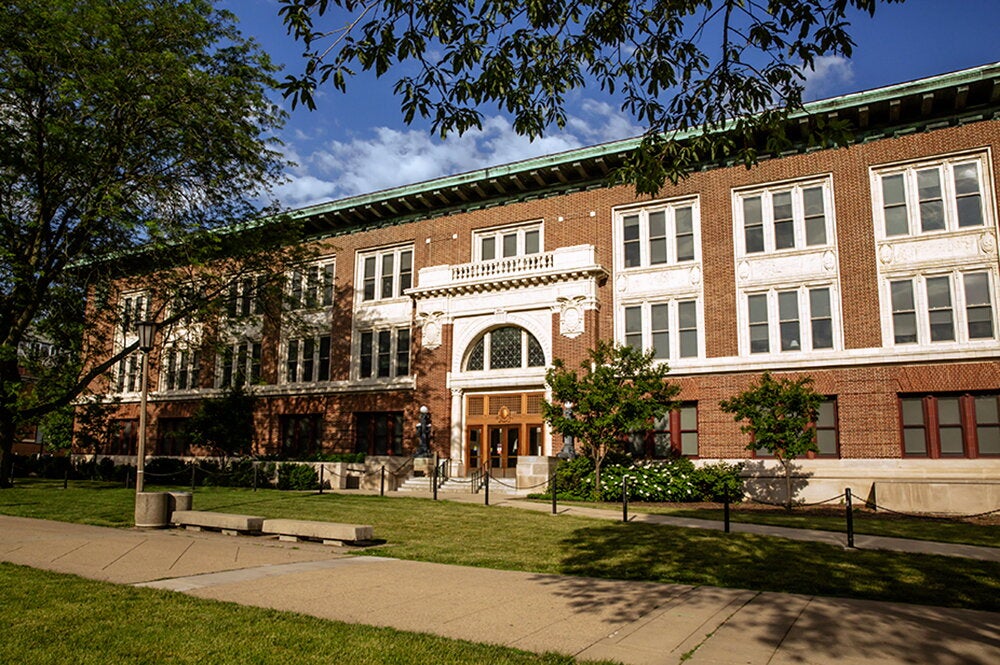

When the poet T.S. Eliot wrote that "April is the cruelest month," he was referring to the weather. But for those with a love for language, the last gasp of winter is becoming a time to celebrate one of literature's liveliest forms—poetry.
April is National Poetry Month, and in the College of LAS, that means a time for recognizing an art that has inspired revolutions and warmed the soul.
U of I poetry professor Tyehimba Jess, who has won awards for such contemporary forms of poetry as open mic and slam, and who also collected the 2004 National Poetry Series Award for his first book of poetry, Leadbelly, sees National Poetry Month as an opportunity to demystify poetry.
"For many people poetry is intimidating because of the way they were introduced to it," says Jess. "I remember a middle school teacher in a school where I was giving a reading telling her class that if a poem was easy to understand it wasn't a good one. That's wrong. A good poem should speak immediately to people, even those who aren't interested in poetry."
His suggestion for people who want to give poetry a try, or re-try, is to get an anthology of contemporary poets and find a poet you like. Then read more poems by that person.
To get started, here are two works that were selected by Jess for the Spring 2007 issue of Ninth Letter, U of I's award-winning literature and arts journal.
Shadow Puppets
Some nights between a wall
and the light, hands transform
into a bat or bird, barking dogs,
geese or rabbits. Of course,
some have more exotic hands.
The stories are simple.
Only one shadow can speak at a time.
They should not overlap. The color
of the dog's fur is not mentioned.
Shadows don't penetrate the wall
or leave marks in the morning.
We cast pictures until our arms
ache and all that's left
is to turn out the light
Dory L. Hudspeth
What's Left
At six, my son remains unclear which is
his left and which his right. He does know how
to snap his fingers—thick, slow, awkward clicks—
but only with his left hand. So, for now,
he snaps to find his left. When I was young,
I had to pledge allegiance to a flag
to figure out my right. Half-chant, half-song,
I'd say the words, a furtive hand would tag
my heart, and it was always right. My son
and I: the same small lacks. He's young. There's time.
For me, I waver still when, morning-stunned,
I stand before the mirror, and feel the climb
of fingers up to neck, back down to chest.
With no allegiance, I reflect what's left.
Elizabeth Klise von Zerneck
Poem in Your Pocket Day. Even if you don't know your couplet from your quatrain, another way to participate in National Poetry Month is by joining in the Academy of American Poets' Poem in Your Pocket Day. Select a poem you love and then carry it with you on April 17, sharing it with family, friends, and coworkers.


